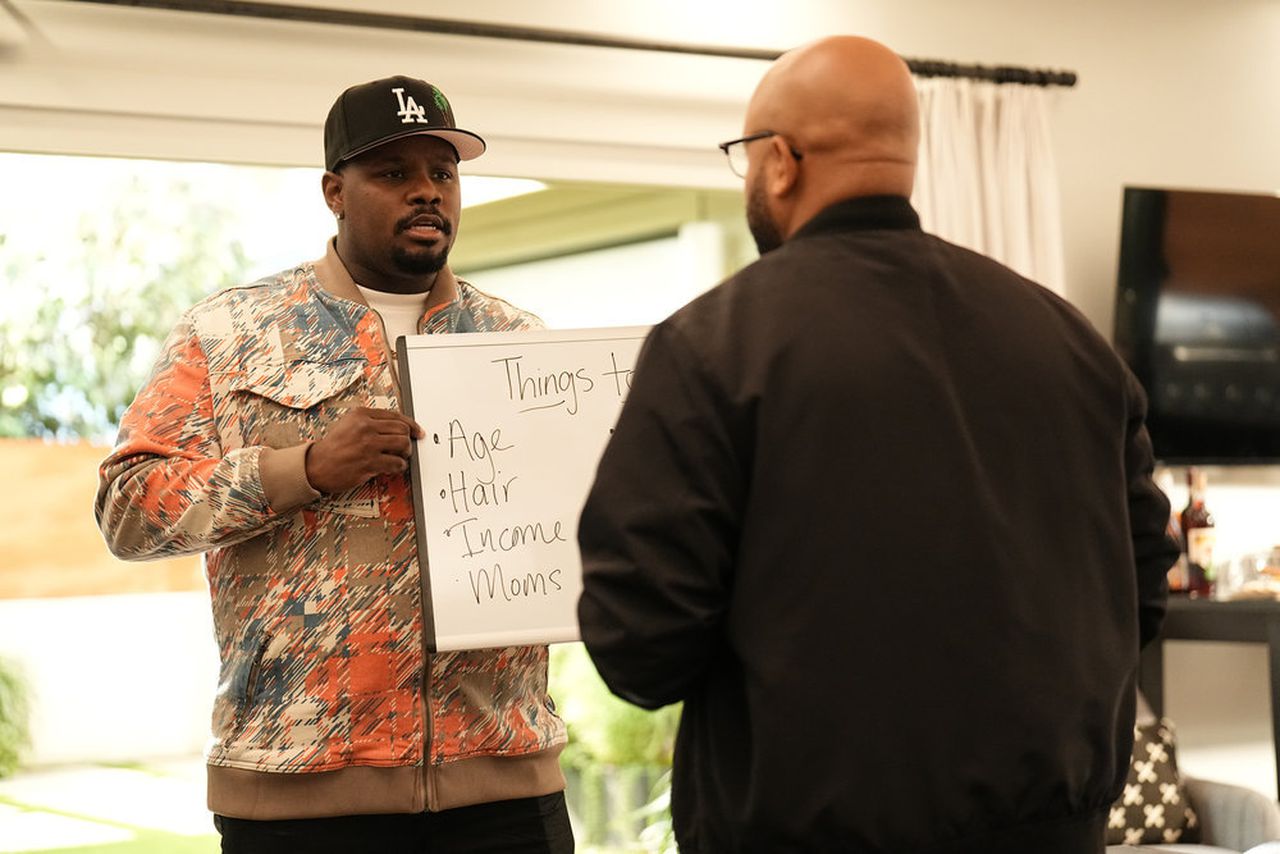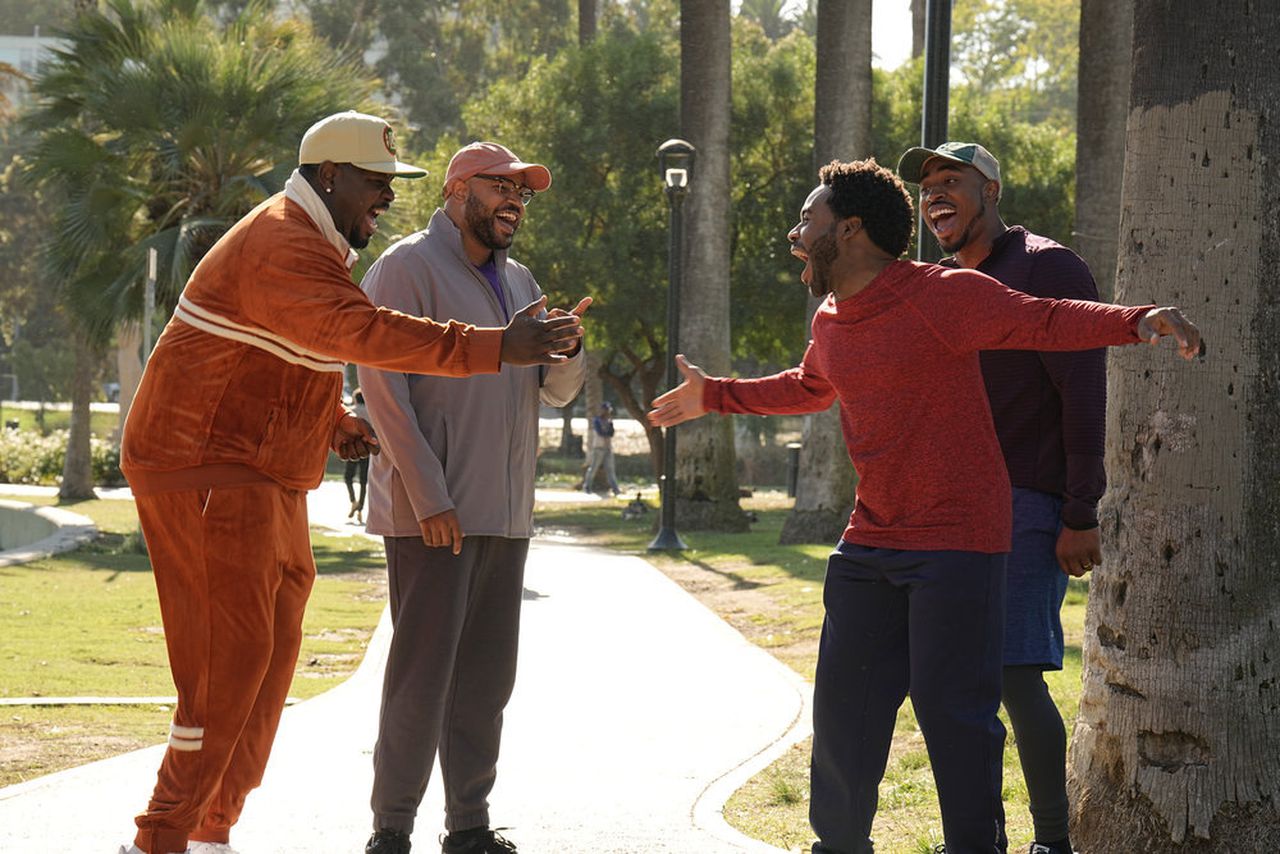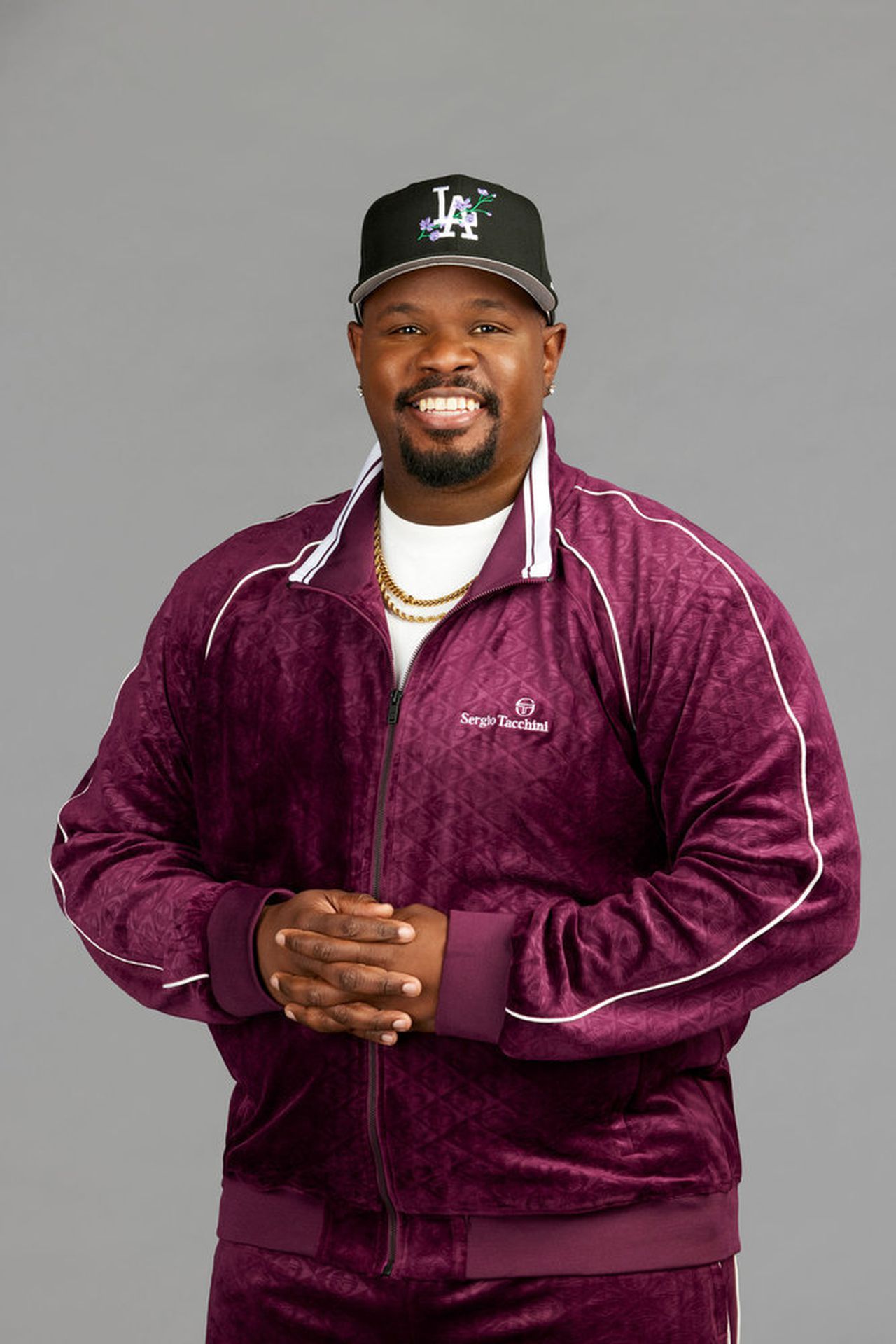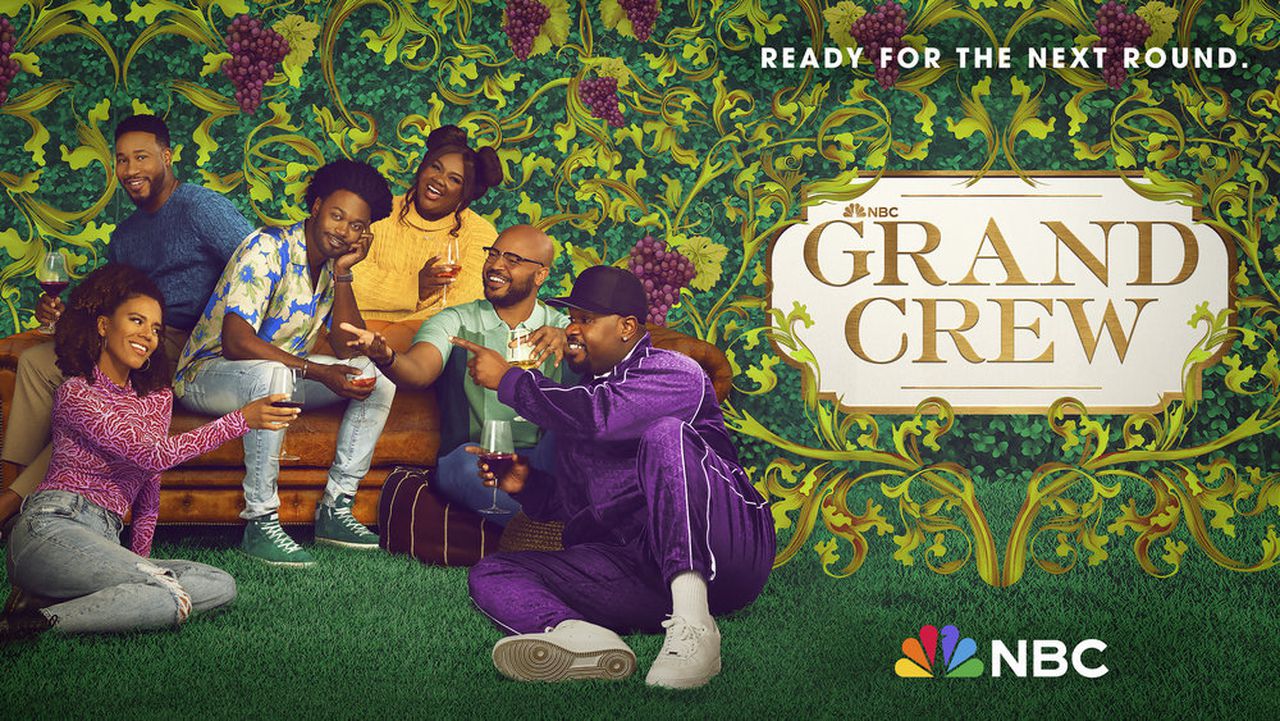Roasting session: Carl Tart on Grand Crew’s searingly funny depiction of Black millennial friend groups
“Boy look at your shoes they look like knockoff Payless sneakers.” – Wyatt, Grand Crew
“When y’all go home tonight make sure you leave them shoes outside on the curb, cause they trash.” – Sherm, Grand Crew
“Boy you so old, ol ancient ass, you ran track with Moses.” – Sherm, Grand Crew
These may sound like harsh insults, the kind intended to destroy your worst enemy. But, really, it’s all love.
This is the art of roasting, also known as joning, ranking, ragging, and, historically, as playing the dozens. Although roasts, events where a guest of honor is subjected to their friends and other guests making jokes at their expense, are common, this ritual has a special place in Black culture.
GRAND CREW — Pictured: “Grand Crew” Key Art — (Photo by: NBC)NBC Entertainment
This tradition is on full display in a recent episode of the NBC comedy series Grand Crew, created by Phil Augusta Jackson and Dan Goor, about wine and centers modern Black friendship dynamics. Main characters Noah (Echo Kellum), Nicky (Nicole Byer), Sherm (Carl Tart), Anthony (Aaron Jennings), Wyatt (Justin Cunningham), and Fay (Grasie Mercedes) navigate the ups and downs of life and love through humor, leaning on each other along the way.
In the episode “Wine & Roasts,” Sherm, played by Carl Tart, realizes his friend Wyatt is terrible at roasting and decides to teach him everything he knows. During a Rocky-like montage of roast training, Sherm barrages Wyatt with the culturally infamous “Boy/Boi” and point combo to sharpen his skills.
“Back in the day, in 2003, when we got on our Pelle Pelle jeans and our oversized throwbacks and our durags with the headband around them, and we like, ‘Boy, don’t you ever, boy, don’t you ever …’ That’s got to be the foundation right there,” Tart tells Reckon.
History of Roasting

GRAND CREW — “Wine & Spades” Episode 206 — Pictured: Carl Tart as Sherm — (Photo by: Elizabeth Morris/NBC)Elizabeth Morris/NBC
The Dozens or playing the dozens’ origins date back to slavery and even African traditions of trading disparaging remarks. Enslaved Black folks in New Orleans that were mutilated and deemed less desirable by their oppressors were grouped together in a “cheap dozen” to be sold off. As a form of resilience, using wit and humor to massage the darkest of times, Black folks flipped this. They began playing the dozens, trading insults as a way to toughen skin and a way to duel and settle disputes as it was illegal to damage property (enslaved folks).
Over time the tradition of trading insults remained a staple in the Black community evolving and taking shape in regional subcultures and becoming commonplace at lunch tables amongst Black youths. But there’s a line in the art of roasting that Tart believes one should always be aware of and know not to cross.
“[A good roast] is subjective, as comedy is. If you’re roasting somebody, you and that person have to know that y’all love each other because things can get real sticky [quickly],” says Tart.

GRAND CREW — “Wine & Spades” Episode 206 — Pictured: (l-r) Carl Tart as Sherm, Justin Cunningham as Wyatt, Amos Blackmon as Dale, Richard Nevels as Keith — (Photo by: Elizabeth Morris/NBC)Elizabeth Morris/NBC
After training is complete, Sherm realizes he’s created a monster and needs to intervene when Wyatt’s roasts cross that line, taking aim at friends’ serious life issues like unemployment and other financial troubles.
According to Tart, going after someone’s known insecurities that they are seriously conscious about is a no-go. “If somebody tells you something in confidence, you can’t bring that up while you roast them. Certain things are off-limits,” he says.
Even “yo mama” jokes can be off-limits for Tart, especially if you know a person’s mother. He believes a good roast focuses on a whack outfit, a bad haircut, bad shoes, or somebody getting into a new hobby. “But if it’s something like, ‘Hey, I’m really insecure about this, and I told you that in confidence,’ don’t pull that out when you roast because that’s just hurtful,” Tart tells Reckon.
Tart’s sweet road to comedy success

GRAND CREW — Season: 2 — Pictured: Carl Tart as Sherm — (Photo by: Jabari Jacobs/NBC)Jabari Jacobs/NBC
A Mississippi native, Tart grew up cracking jokes with his family, being named class clown, and watching classic sitcoms like Martin, Hanging with Mr. Cooper, Fresh Prince, and HBO Def Jam Comedy specials with his older cousins. As a kid, Tart would repeat jokes he’d seen on TV to fit in when he moved from Mississippi to Los Angeles.
“I had a strong accent and didn’t fit in exactly. I learned quickly that, ‘oh, I got this comedic voice and timing that allows me to fit in a little bit more’ because people now want to talk to me. And they say, ‘Oh, that guy’s funny,” Tart tells Reckon.
By high school, although he was focused on playing football, basketball and baseball, he made time for roasting sessions at the lunch table. In college, he played basketball his freshman year before coming to terms with the fact a pro sports career was unlikely.
“I knew that my clock was running out on sports. And so I said, ‘Well, what’s been the most consistent thing that’s been in my life the whole time?’ And it was like, I’ve been able to make people laugh,” Tart says.
For over the past decade, Tart has been doing just that with writing credits, including Kenan (also served as a co-producer), Connecting, Mad TV, Brockmire, Brooklyn Nine-Nine, and Netflix original Sneakerheads. He describes his character on Grand Crew like this: “Sherm, for lack of a better term, is a ball-buster, keeping [the crew] grounded with all the mess they are going through. He has the least put-together life, but he’s probably the most important voice of reason, even though he can be super silly,” says Tart.
Similar to the lesson Wyatt had to learn about when roasting crosses a line, Grand Crew Season 2 is also about the process of maturing.
“Sherm is on a course to find himself and his real purpose in life. We saw flashes of it in season one, where he’s looking at all of his friends around him, and they all have such huge things going for them. He could skate by on that when he was younger, but we’re getting well into our thirties now, and it’s time to figure something out,” Tart says.
He adds: “It’s relatable because I know many people my age are going through the same things, just trying to find their purpose.”
Grand Crew airs Fridays at 8:30/7:30c on NBC and streams next day on Peacock.
